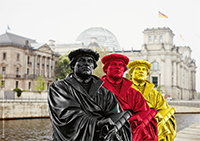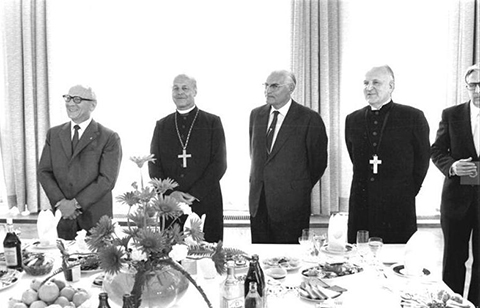Coordinated project group: Protestantism and the German state in the 20th century

In the 20th century, the German state underwent multitudinous reorganisations of its forms of government: from the end of the empire to the first democracy, from the Weimar Republic to the fascist dictatorship of the 1930s and 1940s, from the National Socialists regime to the new foundation of the two states, FRG and GDR, and finally to the reunification in 1990. In these repeated changes of system, Protestantism – closely associated with the national state of the 19th century and defining itself by the connection to the people and the nation – faced the challenge of rethinking its relationship to the changing state and of always exploring it anew. A multitude of new theological concepts developed – which were also related to the ethics of the political and between which there were at times fierce tensions –, as did ecclesiastical and congregational opinions and positions.
Photos

The new coordinated project group founded at the beginning of the summer semester 2015 aims to trace this defining of the relationship to the German state from the perspective of Protestantism in the late 19th and the 20th century in the form of a theological historical reading and source course. Here, on the one hand, both the intellectual elite of Protestantism and the basis consisting of priests and parishes will be taken a closer look at. On the other hand, by identifying and discussing the resulting differences and commonalities, the denominational differentiation of Protestantism will be taken into account throughout.



